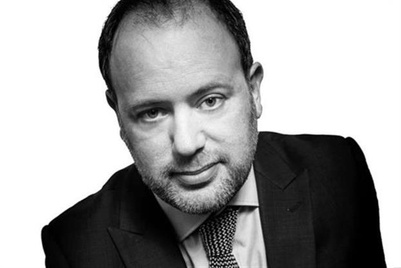
This time last year, the metaverse was a relatively unfamiliar term. A quick scan of Google’s search trends show a flatline in January 2021, before a slow rumble of interest around summer 2021 and a huge upward spike towards the end of last year (no doubt in part due to Facebook’s landmark rebrand.)
Thanks to a recent explosion of the metaverse within popular culture, mass interest has been piqued and, for many, this buzzword du jour has become synonymous with gaming.
And you can see why – all the major metaverse activations so far have, indeed, played out across the big gaming platforms: Gucci, Nike and Vans have all dipped their trendy toes into the world of Roblox; Balenciaga (pictured) and Ariana Grande made unexpected appearances on Fortnite; and even non-profits such as the Ad Council and Reporters Without Borders have experimented with STEM-themed challenges and an Uncensored Library on Minecraft. With this in mind, it can be easy for some to dismiss the metaverse as a gimmicky "gaming thing" – simply the latest tech trend. And while the metaverse and gaming are inextricably linked, there is much more to it under the surface.
A dystopian reality
The vision of the metaverse that we currently hold as sacrosanct is that as defined and popularised by science-fiction works such as Snow Crash and Ready Player One: dystopian science fiction, where the tangible reality of the world is so bleak that the metaverse offers a dose of respite and escapism from the drudgery and horror of actual life. Say what you want about the world in 2022, but we are far from a dystopian hellscape that warrants plugging in and escaping into a new digital reality.
We should look at the evolution of this trend forking into two paths. The first being this idea of totally immersive persistent and embodied worlds – this will be akin to the evolution of entertainment, the future of cinema, gaming and socialising. Engaging by appointment in dedicated portions of time, this is where the current gaming platforms will flourish and lead.
But the other path looks not to plug us into virtual worlds, but to make the real world more virtual, the natural evolution of how humans interact with information and the physical world around them: the post-mobile era. Think augmented layers of the world, with a wealth of information, content and interactivity enhancing our reality. A controllable, customisable contextualisation of the spaces around us.
Opportunity to marketers
Both these paths will blur at times and will be underpinned by the decentralised backbone of Web3, but it’s the second route that offers the scale and opportunity to marketers. Path one seems tangible, because the modern gaming platforms have already started this journey and the worlds of Fortnite and Roblox are analogous to these always-on virtual worlds, whilst path two seems like a fantasy right now. But with Apple, Snap, Meta, Google and Niantic working to achieve this vision, we are just a consumer product release (headset, glasses… contact lens?) away from the journey properly beginning and quickly accelerating over the next few years. Think about mobile pre-iPhone and that is where we are.
So while the metaverse may (understandably) seem indiscernible from gaming right now, over the coming months and years, we will be living through every twist and turn of its exciting evolution into an all-encompassing platform that will totally revolutionise brand and consumer engagement.
Dismissing the metaverse as a shiny, new gaming trend may be foolhardy – now is the time for careful planning, internal alignment and the building of a strong, strategic roadmap to ensure your brand is future-proofed for where the metaverse takes us.
Rosh Singh is managing director of Unit9


+(900+x+600+px)+(3).png&h=334&w=500&q=100&v=20250320&c=1)
+(900+x+600+px).jpg&h=334&w=500&q=100&v=20250320&c=1)
.jpg&h=334&w=500&q=100&v=20250320&c=1)


.jpg&h=334&w=500&q=100&v=20250320&c=1)
+(900+x+600+px).png&h=334&w=500&q=100&v=20250320&c=1)

+(900+x+600+px)+(1).png&h=334&w=500&q=100&v=20250320&c=1)





.jpg&h=268&w=401&q=100&v=20250320&c=1)


